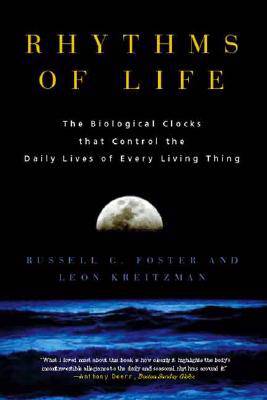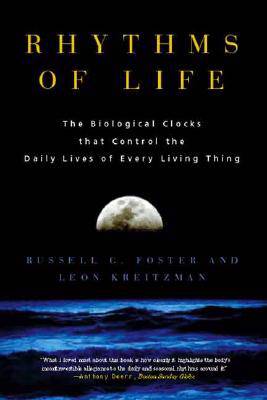
- Retrait gratuit dans votre magasin Club
- 7.000.000 titres dans notre catalogue
- Payer en toute sécurité
- Toujours un magasin près de chez vous
- Retrait gratuit dans votre magasin Club
- 7.000.0000 titres dans notre catalogue
- Payer en toute sécurité
- Toujours un magasin près de chez vous
Rhythms of Life
The Biological Clocks That Control the Daily Lives of Every Living Thing
Russell Foster, Leon KreitzmanDescription
An eye-opening discussion of how biological clocks affect the lives of all living organisms
Why can't teenagers get out of bed in the morning? How do bees tell the time? Why do some plants open and close their flowers at the same time each day? Why do so many people suffer the misery of jet lag? In this fascinating book, Russell Foster and Leon Kreitzman explain the significance of the biological clock, showing how it has played an essential role in evolution and why it continues to play a vitally important role in all living organisms.
The authors tell us that biological clocks are embedded in our genes and reset at sunrise and sunset each day to link astronomical time with an organism's internal time. They discuss how scientists are working out the clockwork mechanisms and what governs them, and they describe how organisms measure different intervals of time, how they are adapted to various cycles, and how light coordinates the time within to the external world. They review problems that can be caused by malfunctioning biological clocks--including jet lag, seasonal affective disorder, and depression. And they warn that although new drugs are being promoted to allow us to stay awake for longer periods, a 24/7 lifestyle can have a harmful impact on our health, both as individuals and as a society.
Spécifications
Parties prenantes
- Auteur(s) :
- Editeur:
Contenu
- Nombre de pages :
- 288
- Langue:
- Anglais
Caractéristiques
- EAN:
- 9780300109696
- Date de parution :
- 01-10-05
- Format:
- Livre broché
- Format numérique:
- Trade paperback (VS)
- Dimensions :
- 155 mm x 234 mm
- Poids :
- 412 g

Les avis
Nous publions uniquement les avis qui respectent les conditions requises. Consultez nos conditions pour les avis.






